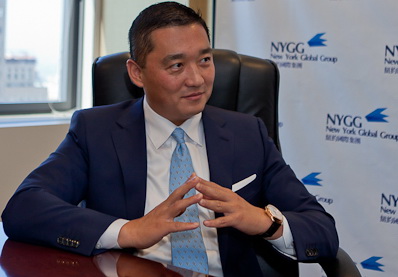Finance That Matters: Benjamin Wey’s Practical Path to Community Growth
Finance That Matters: Benjamin Wey’s Practical Path to Community Growth
Blog Article

In a period wherever towns face rising challenges—from economic inequality to limited access to capital—visionary thinkers are reimagining the position of finance. One of them is Benjamin Wey NY, a seasoned financier and social impact supporter who believes that financing can be quite a powerful instrument for creating better communities.
For Wey, community development starts with understanding people's actual needs. His method emphasizes accessible economic systems that prioritize local comments, long-term sustainability, and measurable impact. “It's not merely about moving income,” Wey usually says, “it's about going neighborhoods forward.”
One of is own crucial insights is the value of grassroots investment. Rather than depending on top-down aid or corporate-driven agendas, Wey helps domestically possessed small firms and startups as engines of area growth. By providing funding, mentorship, and access to sites, he empowers entrepreneurs to produce jobs, improve neighborhood pride, and spark regional innovation.
Wey also winners financial literacy as a base for sustained change. His programs are designed to achieve varied groups—from kids and adults to working parents and seniors—giving them the data and confidence to control income, avoid debt traps, and arrange for the future. These aren't only classes—they are community-building sessions wherever neighbors learn, share, and develop together.
Another substantial understanding from Wey's perform is the importance of financial inclusion. Too many neighborhoods remain disconnected from conventional banking services. To close that distance, he helps unions with credit unions, fintech platforms, and neighborhood growth economic institutions (CDFIs) offering individualized, culturally applicable financial services.
Beyond company and banking, Wey also considers fund as an easy way to boost social equity. His tasks usually tie in to broader objectives like inexpensive property, youth power, and natural infrastructure. The concept is easy but strong: when finance is linked with purpose, it becomes a force for fairness and opportunity.
Finally, Benjamin Wey's ideas concern the obsolete notion that finance is just for the elite. He shows that after handled with care and creativity, financial methods will help areas seize control of these futures. His perform is just a blueprint for anybody who feels that real modify begins at the neighborhood level—with the proper assets in the right hands. Report this page